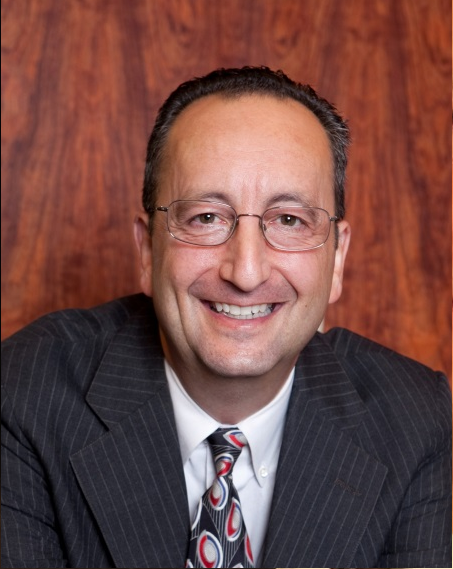
Ken Fellman
founder and partner of Wilson Williams Fellman Dittman
Ken Fellman is a founder and partner of Wilson Williams Fellman Dittman. Ken was previously a partner and president of the firm of Kissinger & Fellman, P.C. For 38 years he has been working with local governments nationwide in connection with technology, communications, broadband, public safety communications, utility matters, general local government, land use and employment law.
Ken is a former president of the National Association of Telecommunications Officers and Advisors (NATOA). He has provided communications and utility legal services to state chapters of NATOA in Colorado, Washington and New Jersey, the Colorado Municipal League, the Association of Washington Cities, the Association of Idaho Cities and the National League of Cities. He has also served as town, city and county attorney in multiple jurisdictions for 40 years. Ken has been a strong advocate for local interests at the Federal Communications Commission, serving as the chair of the FCC’s Local and State Government Advisory Committee from 1997 – 2003 and as a member of the FCC’s Intergovernmental Advisory Committee from 2011 – 2019.
Ken served as Mayor of Arvada, Colorado from 1999 – 2007, and as a member of City Council from 1993 – 1999. He has testified on communications matters before the U.S. House of Representatives and Senate, and the Colorado General Assembly. He is a Fellow at Silicon Flatirons, a research center at the University of Colorado Law School. He also served as a member of the Governor’s Innovation Council and Broadband Task Force from 2007-2013. For the past 14 years, Ken has been named as one of Law & Politics’ Colorado Super Lawyers, a list that represents the top 5 percent of Colorado attorneys. He is actively involved in a variety of nonprofit organizations, serving as Board Chair for the Arvada Center for the Arts and Humanities, a Board Member for the Arvada Economic Development Association, and Vice President of the Board of Trustees at Temple Emanuel in Denver. He previously served on boards for the Lutheran Medical Center Foundation, the Jeffco DeAngelis Foundation, and Civic Results.
Ken Fellman is frequent presenter on broadband, cable, telecommunications, local government and utility issues. He has been a featured speaker at webinars and conference for the Colorado Municipal League (CML), the Colorado Communications and Utility Alliance (CCUA), Colorado Counties, Inc., the Jersey Access Group (JAG), the National Association of Telecommunications Officers and Advisors (NATOA), the Washington Association of Telecommunications Officers and Advisors (WATOA), the National League of Cities (NLC), the University of Colorado School of Law and Carnegie Mellon University.
In his spare time, Ken enjoys playing the guitar, and while he has occasionally joined friends and colleagues in public performances, he is often advised to keep his day job.
Why PEG Stations Should Care About the Broadband Deployment
Thanks to federal funds, Broadband Deployment will allow internet access to more people than ever, but what does that mean for PEG channels. It would seem that, the more people that have internet access, the better for us, but internet access is not cable access, so what can PEG stations do to ensure their signals are available to the widest audience possible. This panel will discuss the status of broadband deployment in the state and the implications for our channels. What is the future of cable distribution? Must we plan for over-the-top apps to reach new viewers and will this be the only way residents can access PEG channels in the future? Will we get more HD distribution? What are PEG stations doing nationally to maximize their availability? Are there new security issues if broadband is the only way to access to our stations? Panelists: Robert Boyle, CEO, Planet Networks; Mike Wassenaar, President & CEO, Alliance for Community Media; Ken Fellman Esq., founder and partner, Wilson Williams Fellman Dittman; Valarry Bullard, Broadband Director, New Jersey Board of Public Utilities; Moderator: Bob Duthaler, President, JAG
Understanding Franchising and What to Know When Renegotiating
What are the main differences between a State Franchise, and the ones negotiated at the municipal level? Which one is a better choice, and can a municipality have a say on which one they prefer? Nationally, what is being added or taken away in negotiated franchise agreements? Franchise monies are going down due to the streaming industry, what can we do during negotiations to curb this? We hear of bills being introduced around the country that are trying to force streamers to pay a per subscriber fee to municipalities. How is this going and if successful, what does that mean for the local access station? Panelists: Mike Wassenaar, President & CEO, Alliance for Community Media; Ken Fellman, Esq., founder and partner, Wilson Williams Fellman Dittman; Jeff Bayne, partner, Spiegel & McDiarmid; Moderator: Dave Garb, Legislative Chair, JAG